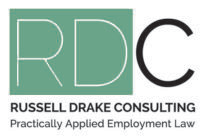As largely expected, following the initial Public Health Order that implemented mandatory vaccination requirements for front line border workers, the Government has now announced mandates for workers within the education and health sectors.
As of 1 January 2022, all school staff who work with children and students must be fully vaccinated.
As of 1 December 2021, all high-risk workers in the health and disability sector must also be fully vaccinated.
High risk workers are defined as all general practitioners, pharmacists, community health nurses, midwives, paramedics, and all healthcare workers in workplaces where vulnerable patients are treated. This mandate will also extend to all aged care and resident care facilities, home and community support workers, Kaupapa Māori Health Providers and NGO’s that provide health related services. In addition to this mandate, are all volunteers and parents/family who spend time in facilities other than dropping off/picking up children or visiting residents. To read the full announcement see this RNZ article.
Many of the above organizations are private entities who receive Government funding, with the Government mandate now providing a high degree of protection for these employers against unjustified dismissal claims from non-vaccinated employees who may soon find themselves out of work. However, this does not provide a mandate to immediately dismiss an unvaccinated employee with the usual employment law requirements of consultation still applying prior to any final decisions being made.
The mandate does however begin to strengthen the position for employers outside of the above sectors to take a firmer stance on vaccination protocols. However, it is unlikely that the Government will ever support any legislation that provides a general mandate to employers to dismiss an employee for failing to be vaccinated. Therefore, given the significant risks that will continue to exist key considerations are:
1. If your organisation is covered by the mandated vaccination protocols, you will need a process for:
- Confirming what roles will be covered by the mandate and what roles may fall outside of these requirements.
- Obtaining confirmation that all required employees have been fully vaccinated by the prescribed dates.
- Defining the future employment status for workers who fall under the mandate but are not vaccinated by the prescribed dates.
- Managing ongoing compliance with the mandate obligations where annual booster shots may be required.
- Seeking confirmation of vaccination status for potential new employees entering the workforce.
- Storing confidential information and gaining employee permission to use this information for legitimate work-related processes
2. If your organisation falls outside of the current mandate perimeters, and you wish to implement a vaccination requirement policy, you will need a process for:
- Assessing which roles can legitimately be defined as high-risk and requiring workers to therefore be vaccinated in order to undertake the role.
- Managing the future employment status of workers in high-risk roles who elect not to the vaccinated.
- Tracking and recording the ongoing vaccination status of employees from year to year
- Seeking confirmation of vaccination status of potential new employees entering high risk roles.
- Information storage and use
Many of these assessment practices are expected to be tested (through personal grievance challenges) over the next few years with this then enabling us to have a better understanding of how the Employment Relations Authority will view such matters. However, in the interim, we recommend that such decisions are made with a high degree of caution and are supported by a robust professional advice and documentation.
If you are needing assistance in implementing any of the above steps, please feel free to give us a call as we are already working within many clients on developing and implementing these new employment measures.

